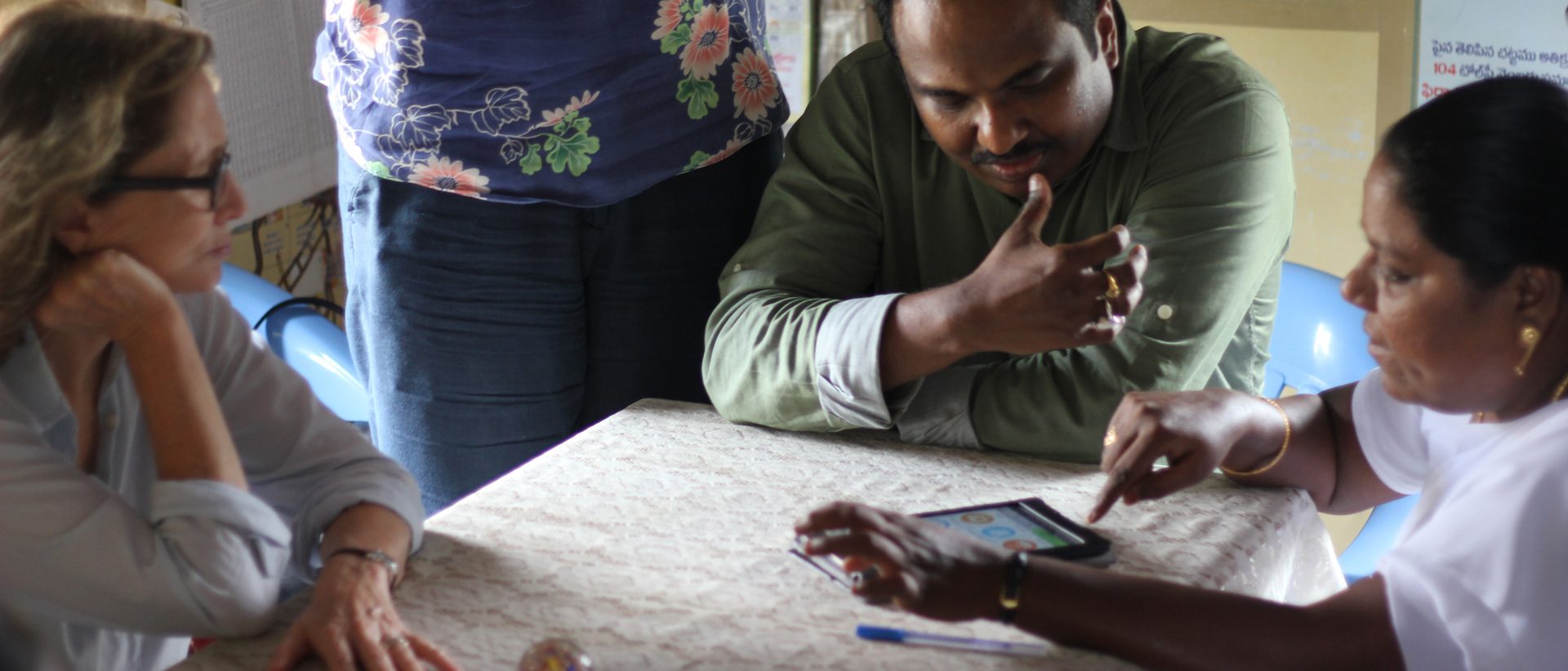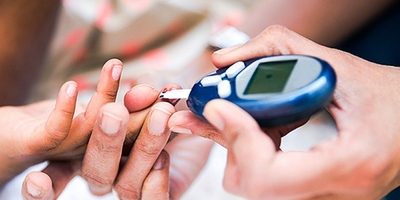
IMPACT Diabetes project kicks-off in Guntur, Andhra Pradesh
Innovative M-health led Participatory Approach to Comprehensive screening and Treatment of Diabetes (IMPACT Diabetes) program was launched in Guntur district of Andhra Pradesh.
Prof. Robyn Norton, Principal Director, The George Institute for Global Health, initiated the IMPACT Diabetes program by presenting SMARThealth kit to ASHA workers and ANMs at the project locations. The kit has a provision of smartphones, BP monitors and other diagnostic tools (eg. glucometers), and access to a clinical decision support system via the Sanamobile platform for all ASHAs and PHC doctors in the intervention period.
The IMPACT Diabetes project will be working towards developing an innovate healthcare delivery approach which involves the non-physician healthcare workforce and training them to effectively identify people with diabetes, refer them appropriately for medical care and then provide a continuum of care in the community.
Community health workers and ASHAs in this study are trained on the disease-related aspects of diabetes, cardiovascular conditions and hands-on experience of using the guideline-based decision support system. The ASHAs and ANMs will use the kit as a platform for home-based screening and they will be assisted by a mobile health enabled clinical decision support tool and the integrated delivery of diabetes management.
Villages from four primary health centres (PHCs) are a part of the study, with two PHCs receiving the standard care and the other two receiving an extended care including multicomponent intervention.
Diabetes is one of the most important causes of death and disability contributing to a significant proportion of healthcare expenditure in India. In India, primary health centres (PHCs) are the first level of contact for management of patients with Diabetes, but guidelines-based care is usually not a part of the clinical routine. Further, the distances required to travel, uncertainty regarding the availability of the doctors and cost in terms of loss of wages, make PHCs not the preferred choice for availing health services by the community.
IMPACT Diabetes study develops and evaluates the feasibility, acceptability and preliminary effectiveness of a novel diabetes management program that utilizes the existing non-physician healthcare workers and uses technology (clinical decision support system (CDSS)) for early detection of diabetes, management and prevention of its complications in individuals aged ≥30 years with diabetes.
Prof. Norton visited the Primary Health Centers (PHC) and Community Health Centers (CHC) in Guntur in Andhra Pradesh in August 2017, where she reviewed the existing SMARThealth programs and interacted with local project in-charges, various district level health officials, health workers including ASHAs and ANMs and PHC doctors.
Talking about the use of technology for providing comprehensive health care, Prof. Norton, says,
“There is an urgent need to develop effective strategies for delivering low-cost, evidence based treatments for management of various disease burdens. SMART Health has the potential to revolutionise the delivery of essential healthcare to those who previously had little or no access. With the use of innovative smartphone technology, we aim to deliver state-of-the-art personalised healthcare in the most cost-effective manner to the people.”
Technology-enabled screening and assessment of disease burden by village level health workers coupled with a referral and treatment system involving doctors in primary health centres have a considerable scope of ensuring that people stay healthy for a longer time. SMART Health, a study by The George Institute for Global Health in the Bhimavaram district of Andhra Pradesh, is a primary healthcare “ecosystem” for resource-poor settings that are designed to enable the Systematic Medical Appraisal, Referral and Treatment (SMART) of patients at high-risk of premature death or disability.
The system was initially developed for the management of common cardiovascular diseases in rural and remote Australia and has recently been extended to rural India with support from the Global Alliance for Chronic Disease. However, SMART Health offers much broader potential to transform primary health care for a range of those conditions most likely to kill or maim people living in resource-poor settings.
SMART Health provides the primary care workforce with a suite of smartphone-based applications that include a simple electronic health record, wireless point-of-care diagnostics and series of evidence-based algorithms for the management of patients with, or at high-risk of, premature death or disability. Continuous central monitoring of user satisfaction, clinical performance and disease outcomes provides the data necessary to ensure quality, safety and self-improvement. Other applications also provide support for operational management and capacity building.





